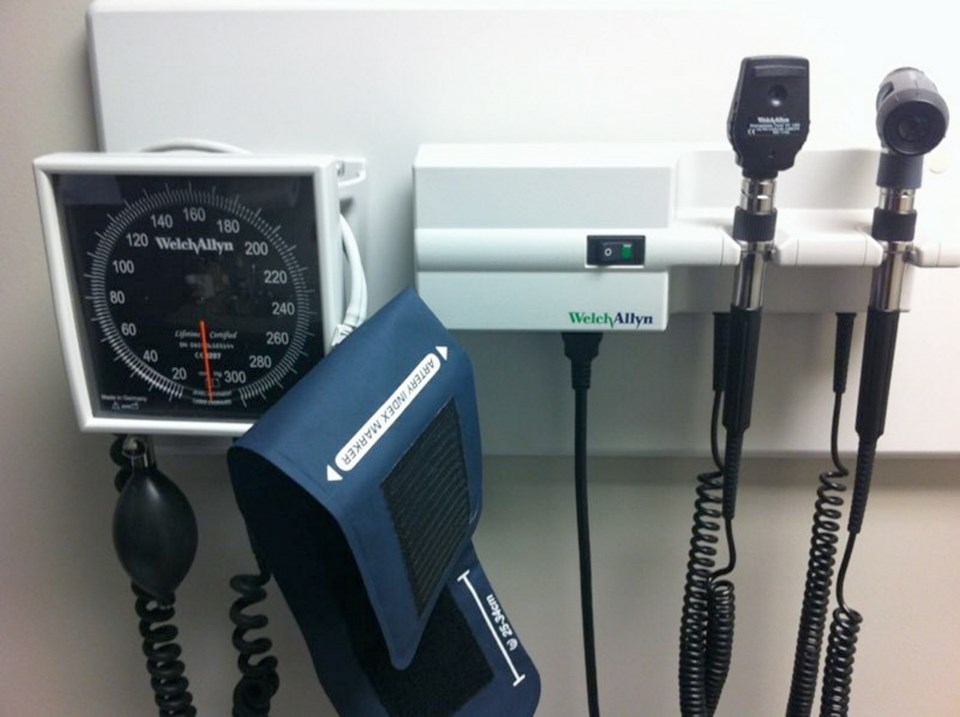In years gone by, it might take days, plus a visit to the doctor, before you got the results of blood or urine tests. Now, with a new online portal, Island Health has largely done away with that.
The portal, called MyHealth, delivers test results in minutes. Let鈥檚 say you go to an Island Health hospital or diagnostic facility for blood work.
You give the staff your email address, and by the time you get home, the results are on your computer screen. A聽password is needed to log on, along with the last four digits of your personal health number.
But once you open the file, everything you need to know is there. The program shows your results, along with the normal range for the test. If you are above or below this range, there will be a note to that effect on the file. The rapid feedback is made possible by computerized sample reading.
LifeLabs, a private company that offers lab tests in Greater Victoria, also provides online access to results, but only for the latest test.
Island Health鈥檚 program shows results from past tests as well, so you can see if your scores are improving.
The program also allows patients who attend cystic fibrosis clinics to book appointments online. That鈥檚 helpful, because frequent visits are part of the treatment process. It鈥檚 likely this ability to book medical appointments online will be expanded as the software is developed.
MyHealth also shows the results of diagnostic imaging, though the patient doesn鈥檛 see the scans, only the radiologist鈥檚 notes. And these are delayed two weeks to give time for the patient鈥檚 physician to call and discuss the results, in the event a serious illness, like cancer, is revealed.
This delay is standard. It isn鈥檛 cause for concern. These results are held back regardless of what they might contain.
Despite the hard work that went into developing this portal, there are two issues that still need attention. First, it appears all blood and urine test results are to be posted immediately, regardless of the finding.
That means patients might learn, online, that they have a serious disorder, like HIV/AIDS, hepatitis C or sickle cell anemia. But given these are dangerous ailments, in the case of sickle cell anemia potentially fatal, is this the way such information should be communicated?
If imaging results are withheld for two weeks to enable the patient鈥檚 doctor to discuss what was found, and what treatment is available, shouldn鈥檛 the same approach be used for blood work that might be equally troubling? A little knowledge can be a dangerous thing.
This is not a fully settled matter. Island Health staff are still working with physicians and patient advisory committees to determine exactly how much information should be available. But there is a need for caution here.
Second, it is clearly essential that the strongest safeguards against privacy breaches should be in place. We had a demonstration of the risks involved last December, when LifeLabs revealed it was the victim of a ransomware attack.
Hackers penetrated the company鈥檚 security system, encrypted an estimated 15 million patient files, and demanded payment in return for releasing the data. LifeLabs paid the ransom, and offered patients protection against identity theft or fraud. Nevertheless, several class-action lawsuits have been filed against the company.
There is probably no such thing as a computerized database that is completely immune from attack. Every few weeks we read of breaches in what we have been led to believe were hardened systems.
Nevertheless, every possible security measure must be taken.
That said, this is a brilliant innovation, and it opens the door to completely new relationships between patients and the health-care system. Essentially, we are gaining more control over the way we are diagnosed and treated.
For a system that has traditionally been somewhat paternalistic and even mysterious at times, this opening of the doors is to be welcomed.



